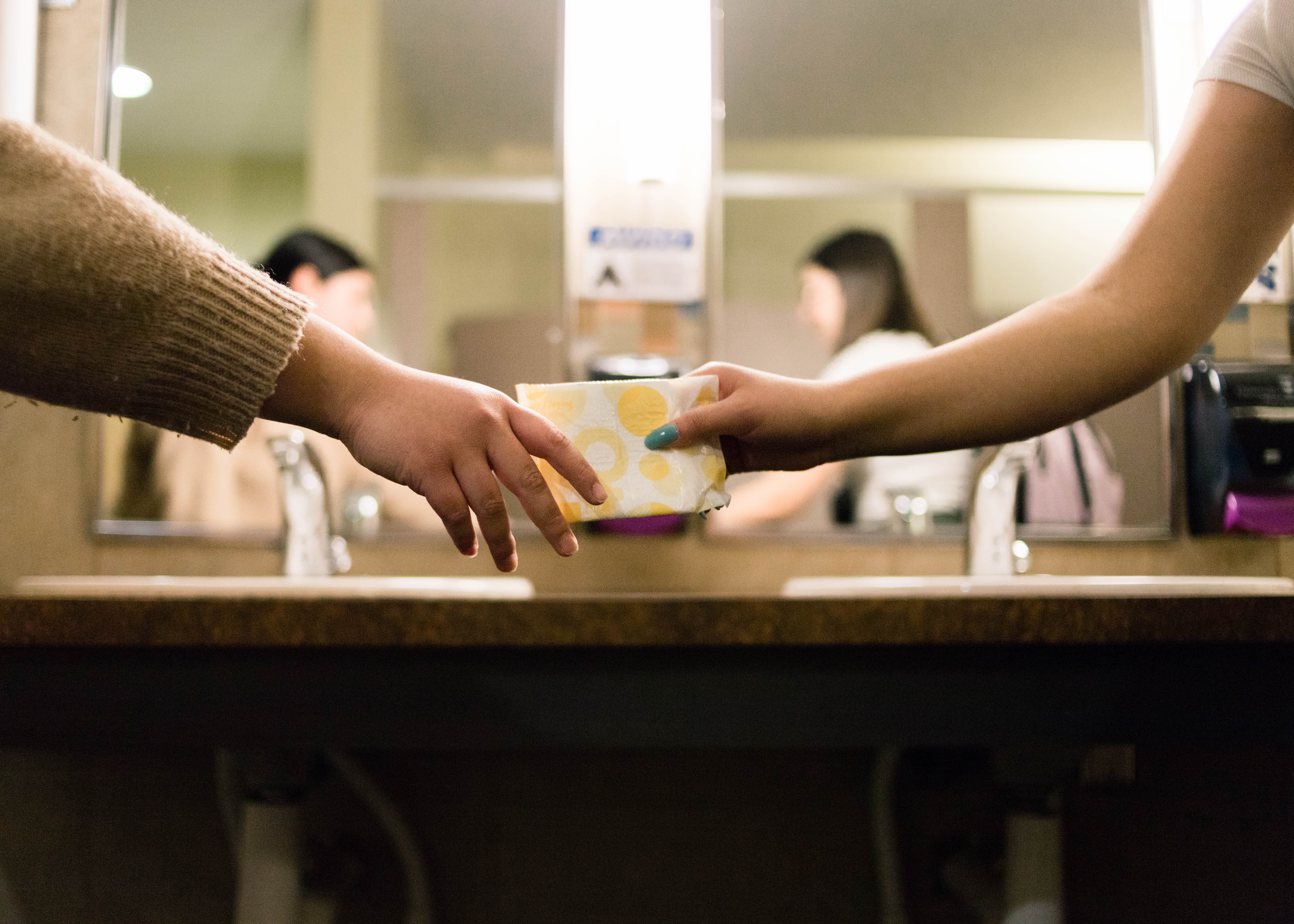
Nearly one-third of young women in the UK have had difficulties affording or accessing period products during Covid-related lockdowns. (Photo by Annika Gordon on Unsplash)
Scotland has become the first nation worldwide to provide free access to tampons and sanitary pads to all women in a bid to end so-called period poverty.
Yesterday, the Scottish Parliament unanimously approved the Period Products (Free Provision) (Scotland) Bill, whose implementation is estimated to cost the local authorities £9.7m a year
The document places a legal duty on the Scottish Government to develop a universal scheme for free access to menstrual product.
In 2018, Scotland already pioneered a 5.2m-pound-worth programme to provide period products to educational institutions.
The draft law on free period products was tabled by MSP Monica Lennon back in April 2019, three years after she started campaigning to end period poverty.
After the passing of the bill, Lennon has called what happened “a proud day for Scotland and a signal to the world that free universal access to period products can be achieved”.
Thank you to everyone who has campaigned for period dignity and to my MSP colleagues for backing the Bill tonight.
A proud day for Scotland and a signal to the world that free universal access to period products can be achieved. #freeperiodproducts ??????? https://t.co/NC3e97jPuQ
— Monica Lennon (@MonicaLennon7) November 24, 2020
Scotland’s First Minister Nicola Sturgeon said in a tweet she was “proud to vote for this groundbreaking legislation”.
The move was widely welcomed online and offline.
Outstanding …. period poverty is a thing ….. period dignity is a thing .
Scotland doing this is brilliant , like all things like this if you can afford it buy it .
This is a safety net and catch all for those women and girls who can’t. https://t.co/UtZWWWS6CQ— Susie McCabe (@susie_mccabe) November 24, 2020
CEO of international children’s charity Plan International UK Rose Caldwell said in a statement that “In making this world-first commitment, the Scottish government has shown itself to be a pioneer in tackling period poverty, and we hope that nations around the world will follow its lead.
“Through this landmark legislation, Scotland could soon become the first country in the world to eliminate period poverty once and for all, and with household finances under strain from the coronavirus restrictions, the need has never been greater.”
And Plan International UK is not the only charity voicing concerns about access to period products during the pandemic.
Even before Covid-19 struck, it reported that about 10 per cent of girls and women in the UK aged 14 to 21 had been unable to afford period products.
Its survey conducted in May 2020 revealed that nearly one-third of women in the same age group have had difficulties affording or accessing period products during lockdowns.
This year the UK rolled out a programme giving free access to period products to students at all state-maintained schools, but the impact of this move was reduced by the Covid crisis.
Charity Bloody Good Period, which has been supplying food banks and asylum seeker drop in-centres with menstrual products, said that the demand has increased almost six-fold compared to before the Covid-19 outbreak.
Across the world, feminine hygiene products are often taxed at higher rates, with Hungary and Denmark having one of the highest taxes on period products (27 and 25 per cent respectively).
In the UK, VAT has been charged on menstrual products at a rate of 5 per cent, but there are plans to drop this “tampon tax” after the Brexit transition period ends on 31 December.
In the USA sales taxes on period products vary from state to state, with New York, for instance, eliminating sales tax on them back in 2016.
Meanwhile, sporadical attempts to fight period poverty are being made in different countries.
The New York Times reported in November on a grassroots campaign in China to provide pads to school and college students who cannot afford menstrual products.